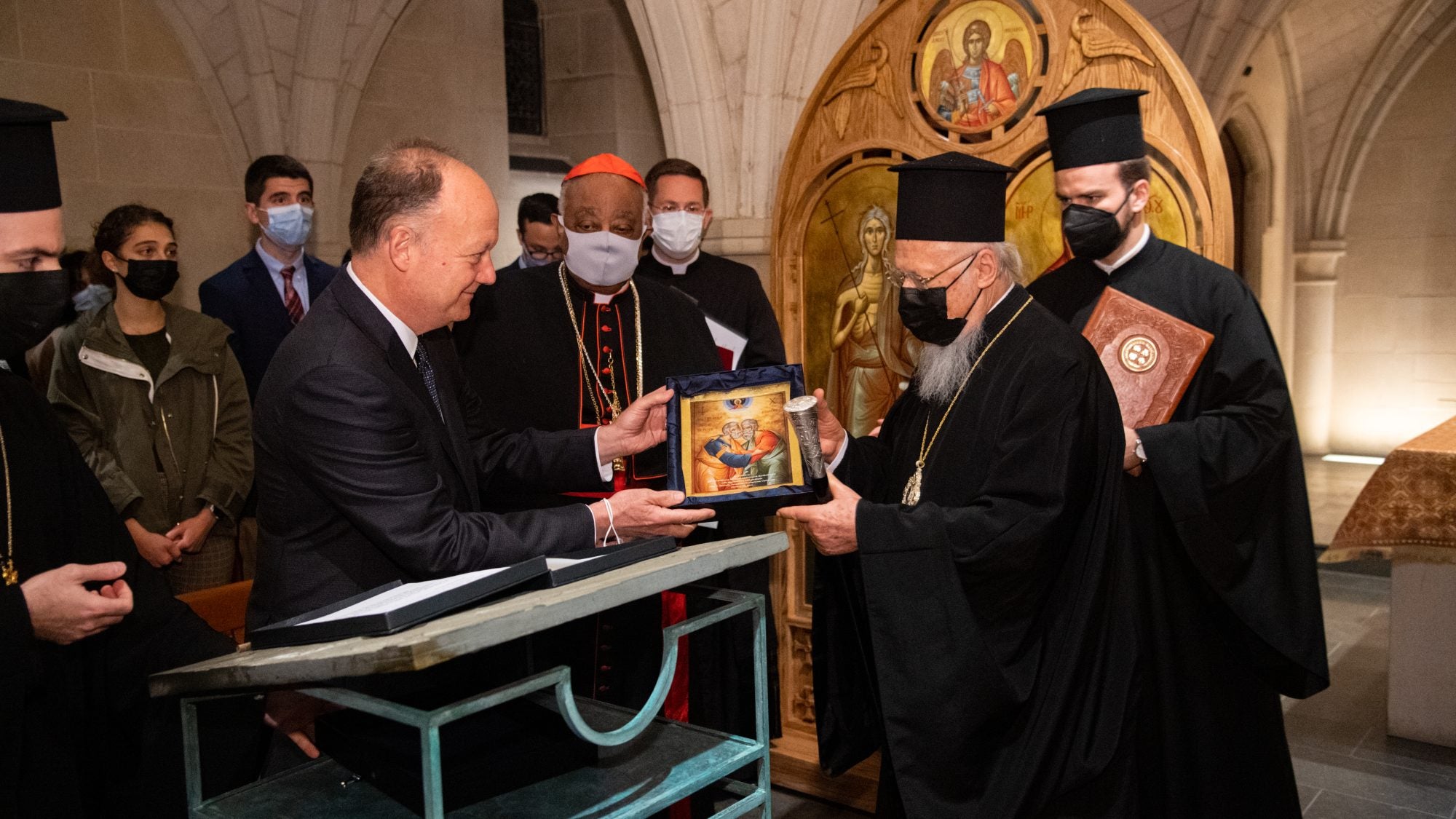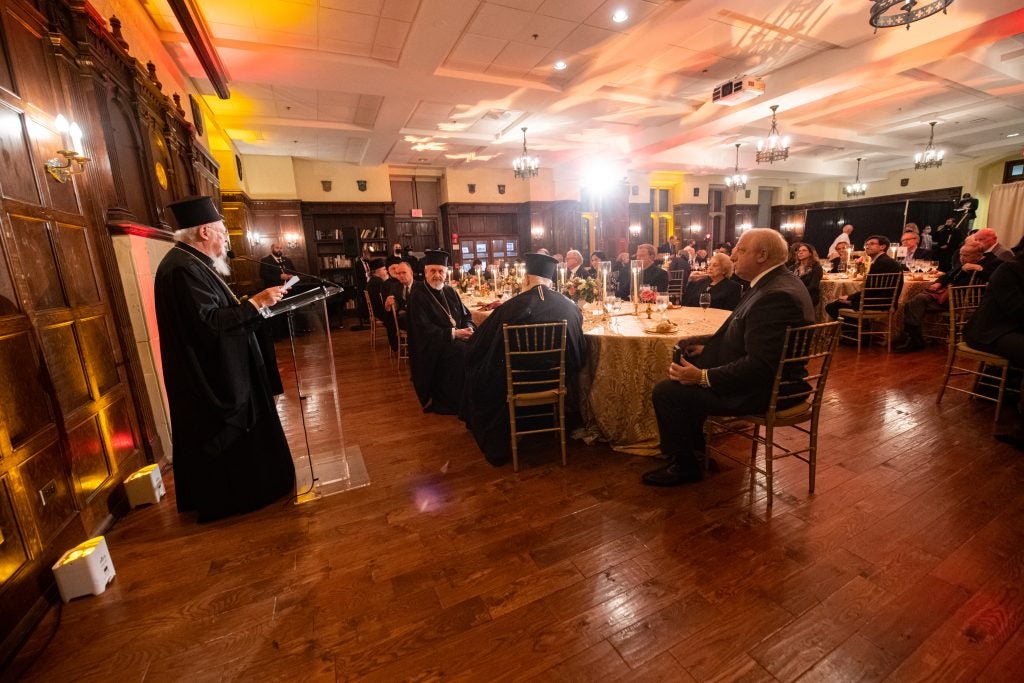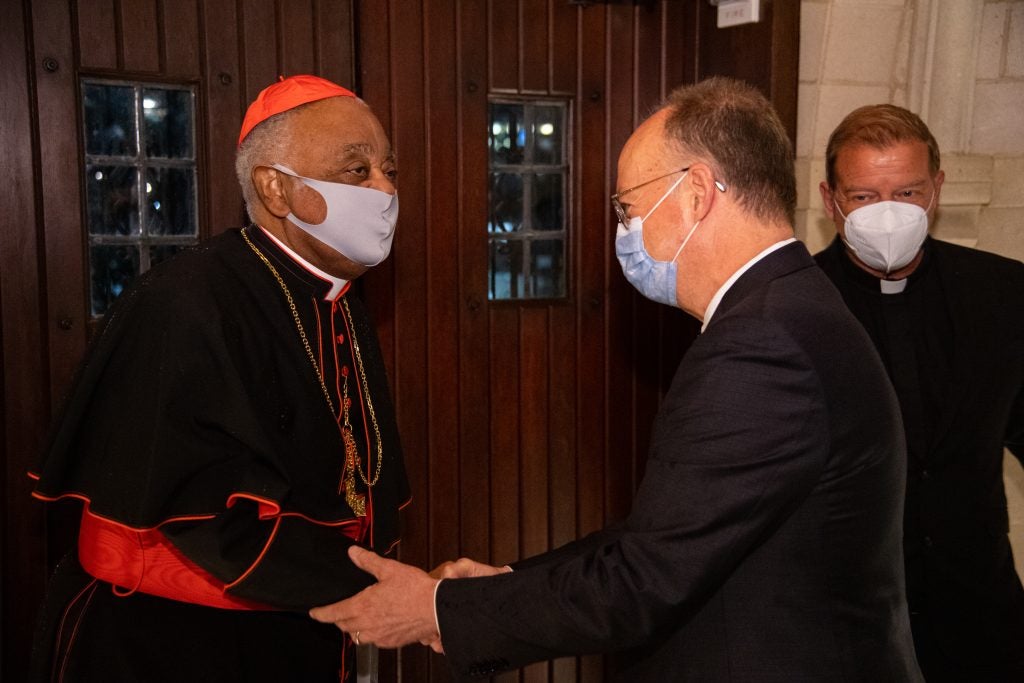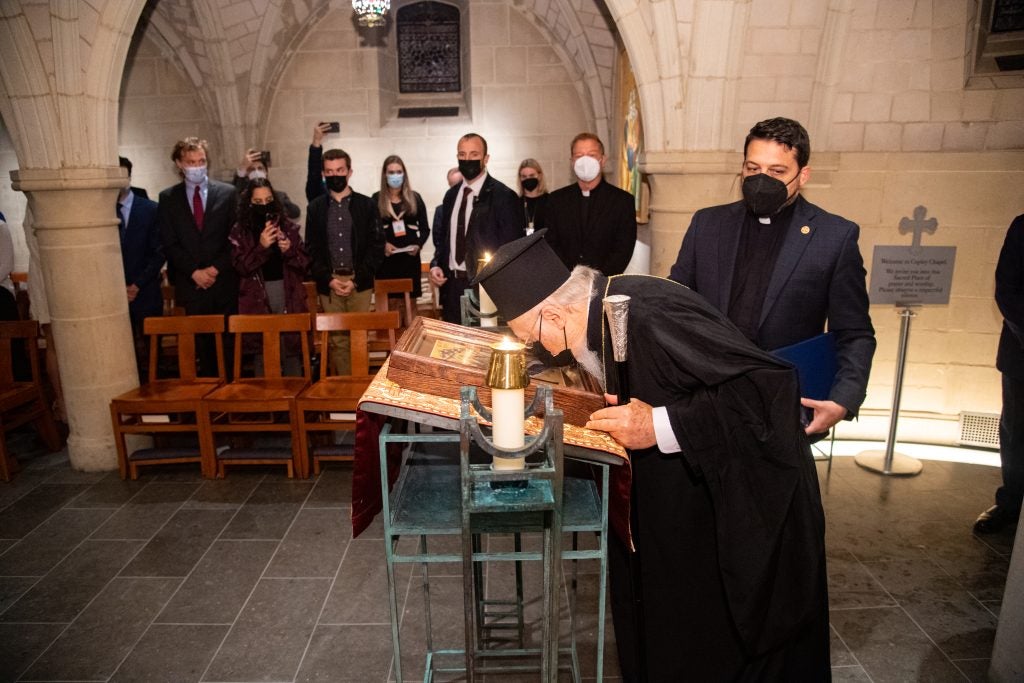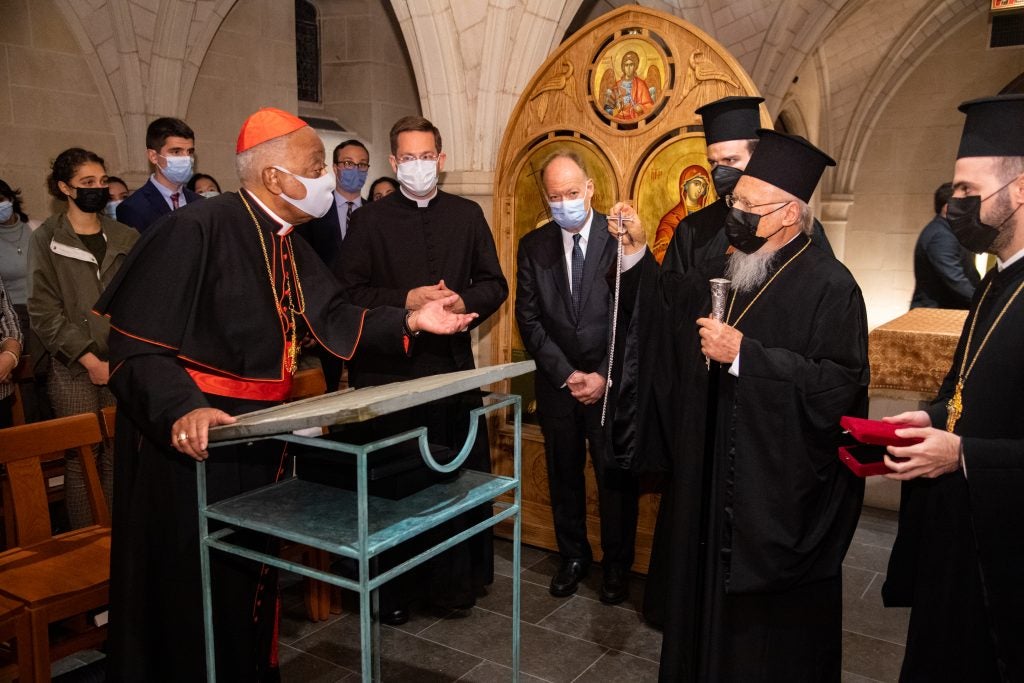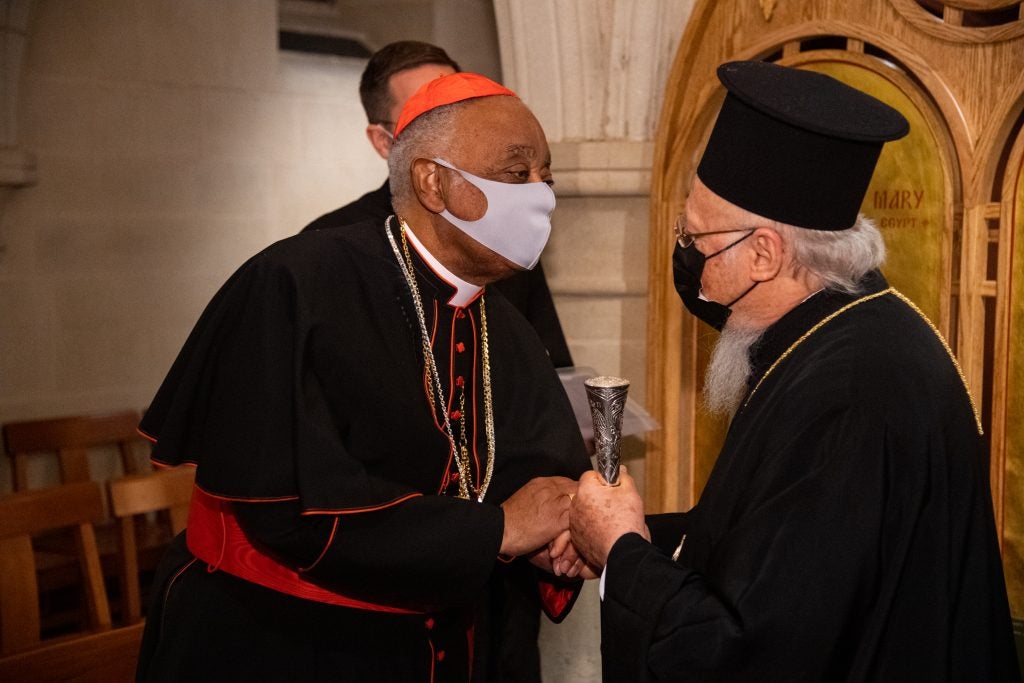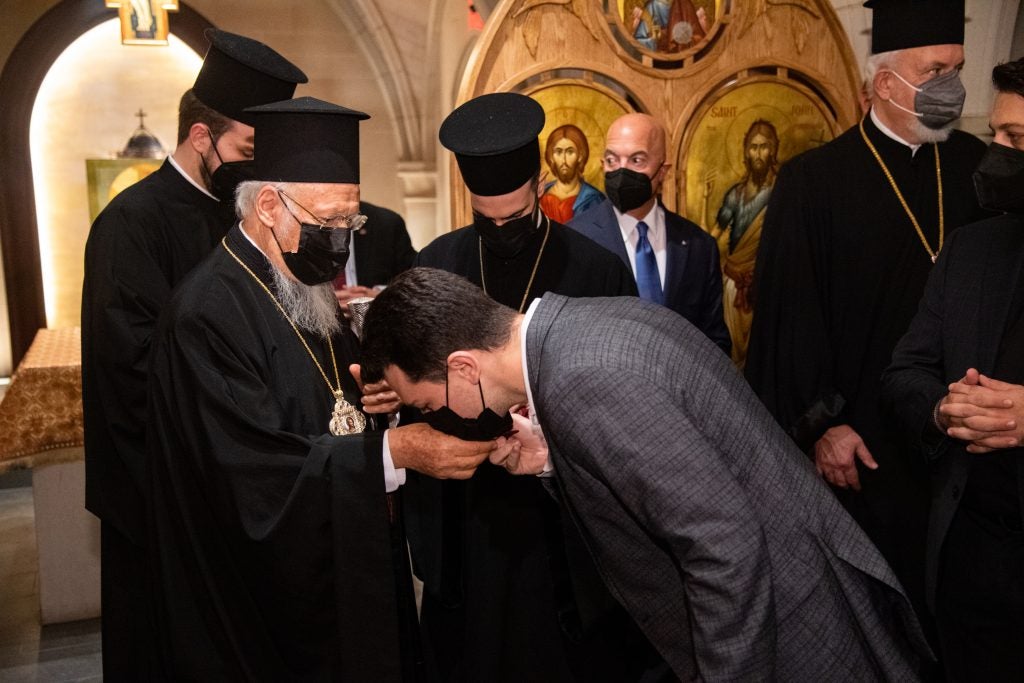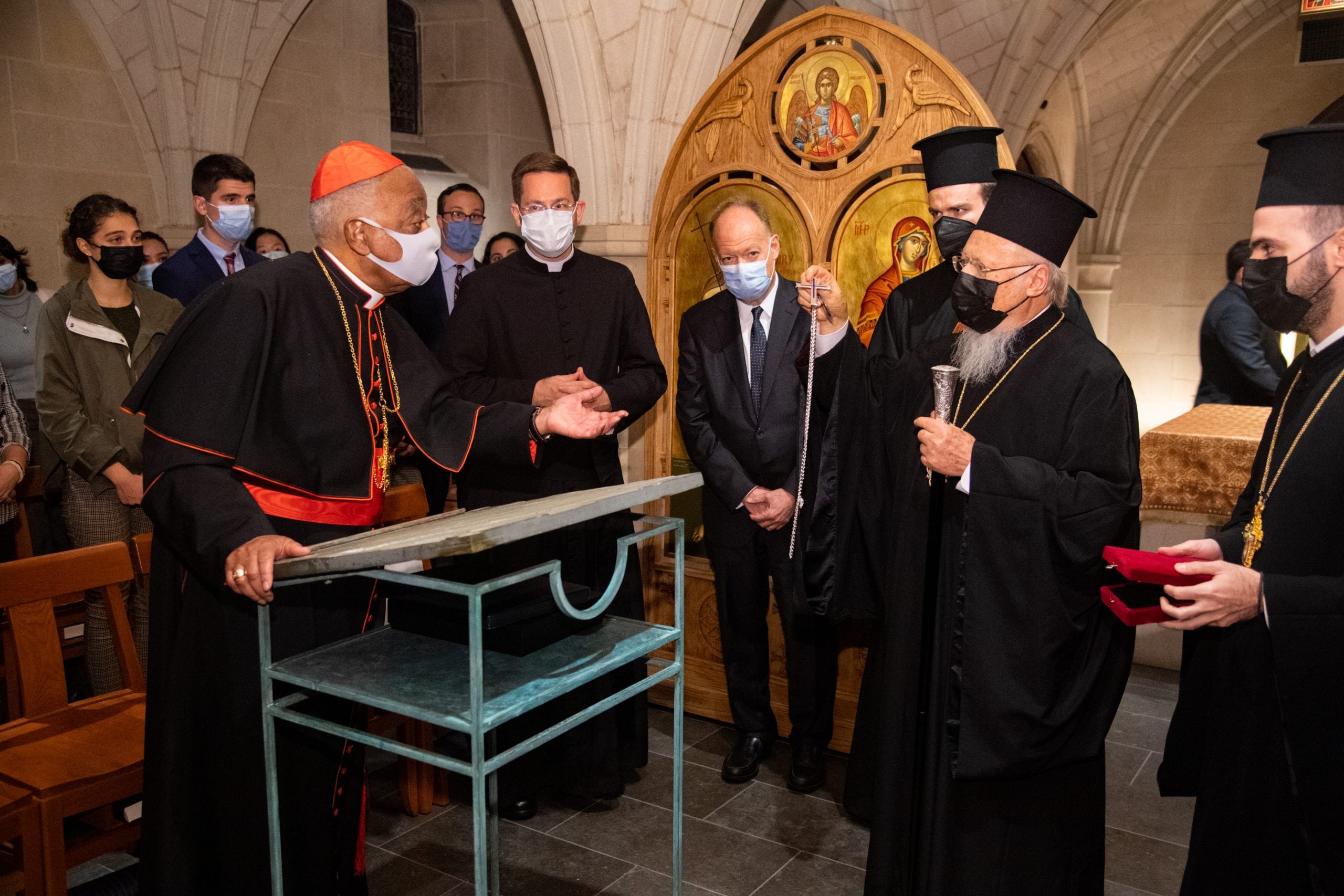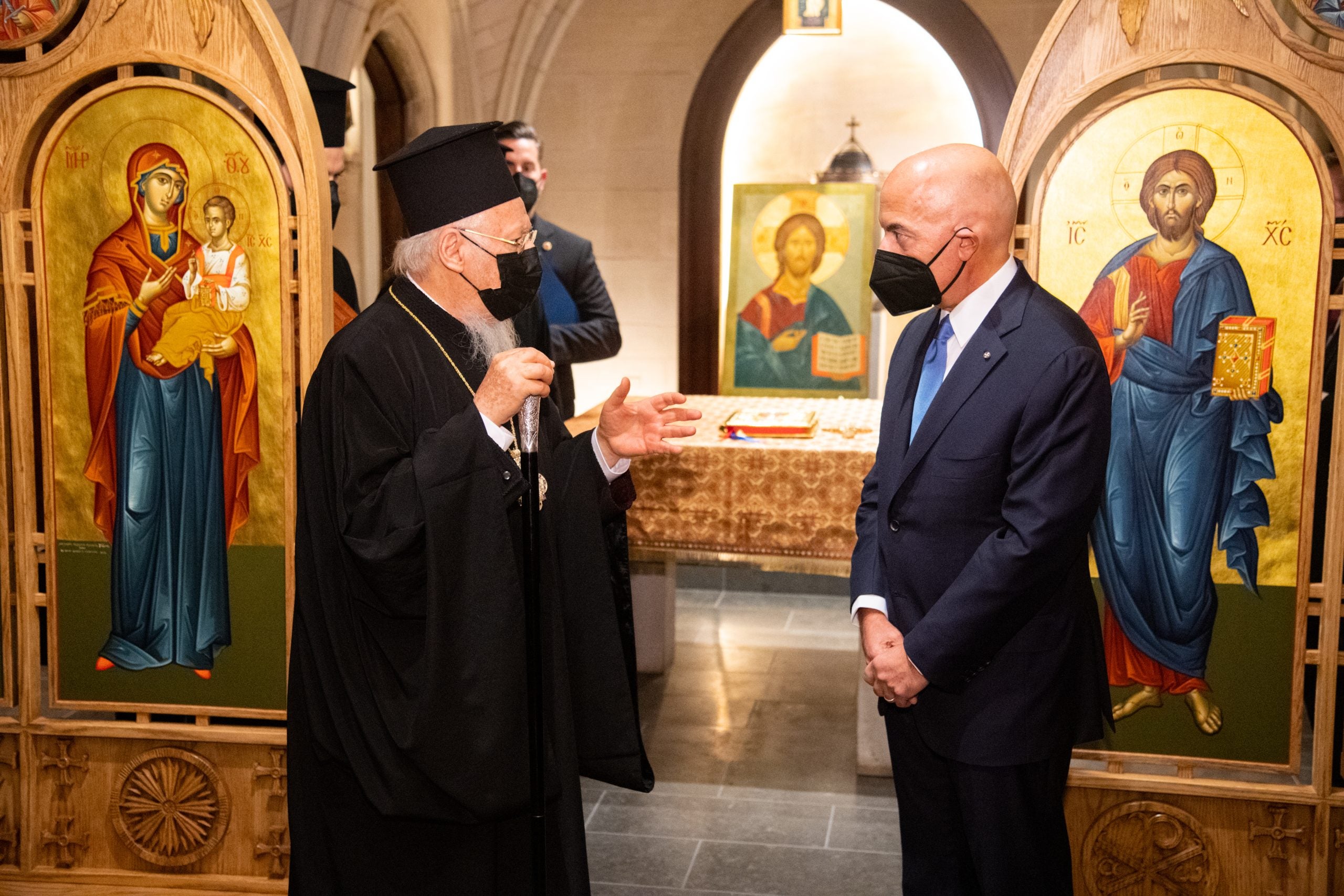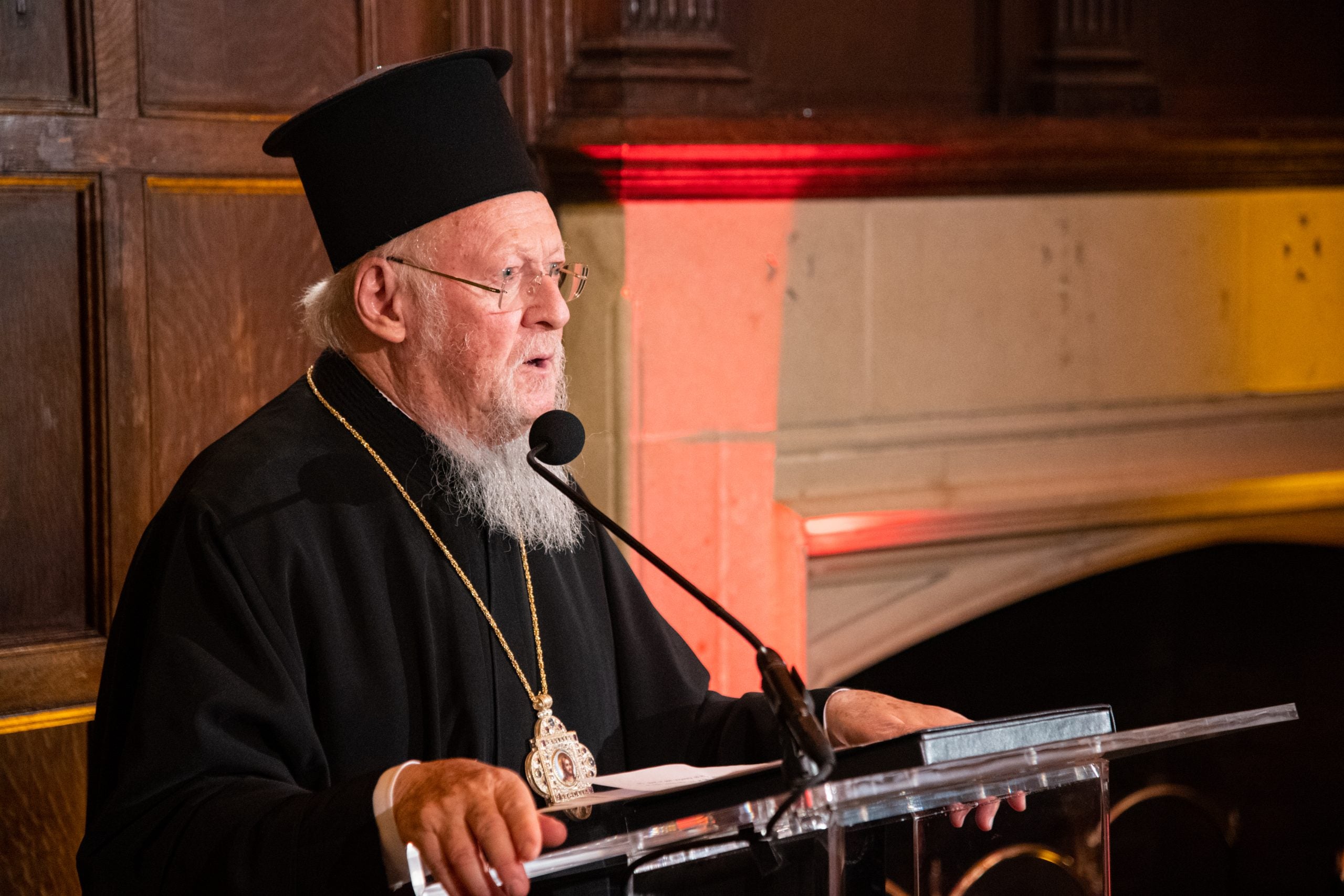The Ecumenical Patriarch, renown for advancing interreligious dialogue and reconciliation worldwide, attended an interfaith ceremony with Cardinal Wilton Gregory, archbishop of Washington, DC, Georgetown President John J. DeGioia, Thomas A. Reynolds III, chair of Georgetown’s Board of Directors, and Georgetown University students.
The ceremony took place in Georgetown’s newly renovated Copley Crypt Chapel, where Catholic Masses and Orthodox Christian liturgical services are celebrated year-round. Standing before a newly installed Orthodox icon screen, the Ecumenical Patriarch praised his “real brotherly friendship with Pope Francis” and accepted a ceremonial gift symbolizing religious unity from Georgetown President John J. DeGioia.
“We have a special connection to this marvelous institution,” the Ecumenical Patriarch said during a later dinner at Georgetown. “We would like to add a heartfelt expression of our appreciation for Georgetown and its ongoing role in the intellectual and spiritual formation of so many.”
The Ecumenical Patriarch is the 270th archbishop of the Orthodox Christian Church, founded by the apostle Andrew in A.D. 36 in Byzantium, now Istanbul. Elected in 1991, the Ecumenical Patriarch has worked closely with international political and interfaith leaders to advance religious freedom, human rights and environmental protection.
As a Catholic and Jesuit institution rooted in ecumenical and interfaith dialogue and respect for all faith traditions, Georgetown is “deeply honored to be joined by the Ecumenical Patriarch,” President DeGioia said during his dinner address.
“As we celebrate this special occasion, we recognize both the presence of our Orthodox community here at Georgetown and the strength of our Jesuit tradition, which calls us into engagement across faith traditions. We gather this evening together in dialogue and friendship, seeking to build and strengthen our relationship with one another.”
